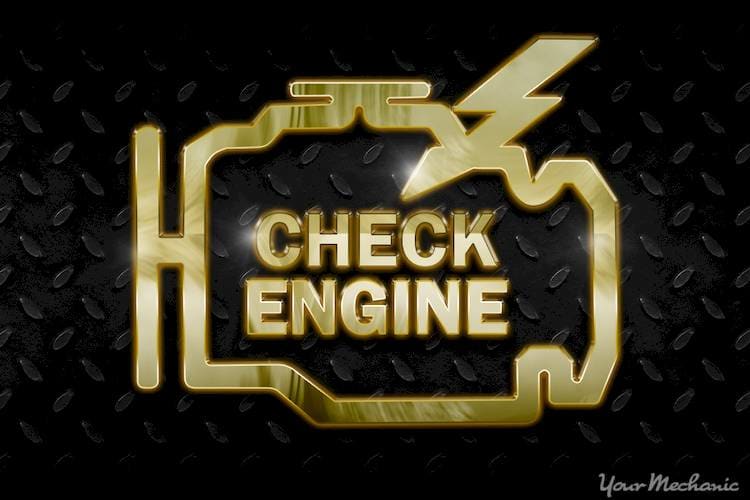P0130 code definition
The P0130 code is associated with the bank 1, sensor 1, oxygen sensor. Your vehicle may have anywhere up to five oxygen sensors.
It also may be related to other codes, such as: P0131, P0132, P0133, P0134. P0135, P0171, or P0175.
What the P0130 code means
P0130 is the OBD-II generic code describing an issue with the bank 1, oxygen sensor 1 (HO2S B1 S1).
It indicates that the engine computer (ECM) is not detecting proper activity from the sensor. This will cause your ECM to turn a light on and change engine management strategies which will affect fuel economy.
What causes the P0130 code?
The HO2S sensor code may have several causes:
- Disconnected plug to the sensor
- Possible corrosion in the sensor connector
- Damage to the sensor wiring to the ECM
- Fuel system having poor volume to the engine (i.e. Fuel Pump or other component)
- Intake vacuum air leaks
- Loose connections in the air or fuel systems
- Mass Air Flow sensor (MAF) reading out of range
- Manifold Absolute Pressure sensor (MAP) reading out of range
- Evaporative Emissions (EVAP) leaks
- HO2S sensors reading out of range
- Leaking fuel pressure regulator
- The ECM is damaged
What are the symptoms of the P0130 code?
The P0130 code will produce a Check Engine Light on the instrument panel/dash and will likely affect:
- How the engine performance runs during driving
- Possible stalling
- May cause the exhaust to show smoke in various colors from black to white
- Fuel economy will also lower
How does a mechanic diagnose the P0130 code?
P0130 is properly diagnosed with a scan tool capable of sensor readings (not just one from an auto parts store).
A qualified technician can read the data from the scan tool to determine when the problem occurred, or if it is still occurring. They may clear the code / light and test drive the vehicle while monitoring data to see if it returns.
Based upon the conditions of the testing, further diagnosis will be required. Diagnosis could require multiple electrical tools such as:
- An advanced scan tool to read the ECM.
- A digital meter with attachments.
- A smoke machine, which puts smoke in the intake system to detect leaks.
Common mistakes when diagnosing the P0130 code
Just replacing the part never guarantees a success in resolving your problem. It may be caused by several issues as listed above and possibly more.
A visual inspection and tests with a scan tool and special equipment also listed above will verify your problem before potentially spending money and time replacing the sensor.
Waveforms (electrical signals) will have to be evaluated by a scan tool or oscilloscope to ensure the part or repair that is required to be performed. Additional testing may be required.
How serious is the P0130 code?
The P0130 code will not likely cause your vehicle from running, however, it will:
- Affect fuel economy
- Cause fuel instability which may damage your engine
- Potentially damage your catalytic converters which is an expensive repair
- Prevent you from passing emissions
A technician can diagnose the problem with proper tools to verify these potential issues.
What repairs can fix the P0130 code?
The most common potential repairs to address the P0130 code are as follows:
- Connect a professional scan tool. Verify the code exists.
- Check for any other faults. Clear the code to see if it returns.
- Analyze data from the ECM.
- Road test the vehicle.
- Check to see if the P0130 returns.
- Inspect all of the items listed above. (wiring, leaks, etc)
- Further diagnose the problem with the equipment listed above (scan tool, voltage meter). The signals from the sensor need to be analyzed to determine where the problem exists. If the signals are fine, then we need to move towards the wiring or computer.
- Replace the component which is faulty.
Any sensor issue may occur constantly or intermittently. Some fault codes may require more time to diagnose.
With this particular code, the solution could be simple or require extended time to resolve. Depending on your vehicle, it may take several hours to determine the root cause.
I have experienced this code in the past. After using a scan tool and monitoring the voltage, I could determine if the oxygen sensor was at fault. With the scan tool connected, I typically spray the engine and vacuum lines with brake cleaner while watching the RPM and oxygen sensor values to look for leaks. The RPM or sensor values will change when sprayed if there is a leak in the area sprayed.
I have found vacuum hoses from the engine disconnected, loose air intake hoses from the air filter, and faulty oxygen sensors. In one case I found the wiring was routed incorrectly and caused the wiring to touch the exhaust manifold. The wires burned and shorted to ground causing the fault.
Another case, I found a rodent chewed threw the wiring. The P0130 code may have many root causes which requires a skilled technician to find the cause.
The vacuum hose system requires inspection. A scan tool inspection is required. Then we can determine where the fault lies. We could clear the fault code / light first, and verify if the Check Engine Light returns initially, and go forward from there. It might have been a weird occurrence from bad gas, weather, or a permanent problem.
Vehicles with high mileage (over 100k) may just need a sensor. I typically replace mine at 80,000 miles to prevent problems.
Need help with a P0130 code?
YourMechanic offers certified mobile mechanics who will come to your home or office to diagnose and repair your vehicle. Get a quote and book an appointment online or speak to a service advisor at 1-800-701-6230.
Check Engine Light
P0130
trouble codes





